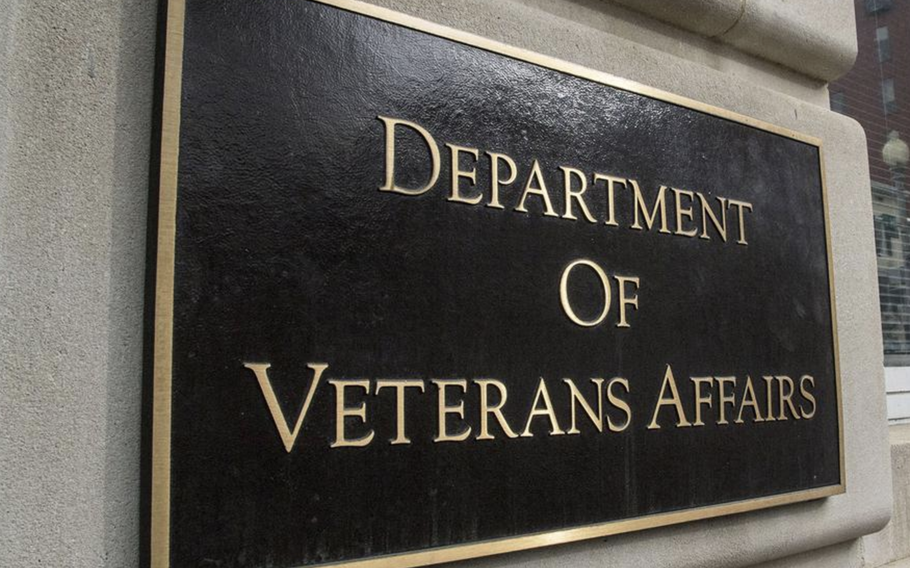
The Department of Veterans Affairs lacks the money to cover veterans’ benefits starting Oct. 1, which is the first day of the new fiscal year. Benefits include disability compensation, retirement payouts and college tuition assistance under the GI bill. (Stars and Stripes)
WASHINGTON — Lawmakers have until Friday to close a nearly $3 billion budget gap at the Department of Veterans Affairs to ensure millions of veterans and their survivors receive their monthly benefits on time in October.
That is the warning message from VA officials and veterans advocacy groups about benefits for disability, pensions, college tuition and indemnity for survivors that could be disrupted without emergency funding approved by Congress.
The Senate Veterans’ Affairs Committee is scheduled to examine the fiscal 2024 budget shortfall at an oversight hearing Wednesday.
Because of the time it takes to process payments, beneficiaries might have to wait days or weeks to receive monthly compensation if the shortfall is not addressed this week, the VA said.
VA leaders first disclosed to lawmakers in mid-July that the agency lacked sufficient funding to cover benefits starting Oct. 1, which is the first day of the new fiscal year.
VA Secretary Denis McDonough told lawmakers that the VA anticipated a nearly $2.9 billion shortfall in fiscal 2024 and an additional $12 billion spending gap in 2025.
He said the VA was facing higher costs for prescription drugs, health care coverage and benefits awarded to veterans under the Sergeant First Class Heath Robinson Promise to Address Comprehensive Toxics Act of 2022, also known as the PACT Act. The law expanded health care and disability compensation for veterans exposed to toxic substances during their military service.
McDonough told lawmakers that claims filed by veterans exposed to toxic materials increased spending for disability compensation and health care services. Veterans have filed nearly 1.5 million claims for compensation in two years.
Monthly VA benefits are paid out to 6 million veterans receiving disability compensation, 850,000 individuals using the GI bill to pay for college, 500,000 survivors of veterans killed in the line of duty and 250,000 pensioners.
Veterans organizations also are urging Congress to support additional funding so benefits are not interrupted.
“We have been throwing up red flags for nearly a year that a shortfall was coming,” said Robert Thomas, president of Paralyzed Veterans of America. “We need Congress to step up and get this taken care of so we all can sustain a healthy life.”
He said a lack of funding at the VA is also affecting staffing at hospitals and clinics, which impacts important services for paralyzed veterans, such as getting wheelchairs repaired and infections treated.
Rep. Mike Garcia, R-Calif., has introduced the Veterans Benefits Continuity and Accountability Supplemental Appropriations Act to fund fully the VA’s request for more money.
The bill provides supplemental funding to the Veterans Benefits Administration and establishes reporting requirements.
The legislation, introduced Sept. 6, is co-sponsored by Rep. Tom Cole, R-Okla., chairman of House Appropriations Committee, and Rep. Mike Bost, R-Ill., chairman of the House Veterans’ Affairs Committee.
The bill requires the VA to do a better job of disclosing its finances to Congress, including changes anticipated for future budget requests. It also requests for the VA inspector general to conduct an independent investigation into budget overruns at the VA.
“The VA budget is serious business that has a real impact on veterans lives,” Bost said.
In July, Sen. Sherrod Brown, D-Ohio, introduced similar legislation to cover the 2024 shortfall, along with Sens. Patty Murray, D-Wash., and Susan Collins, R-Maine, the leaders of the Senate Appropriations Committee.
Julia Mathis, legislative director at the American Legion, and other veterans advocates said they are urging members of Congress to reconcile differences in the two bills and come to an agreement.
“Every day we get closer to Sept. 20 is another 24 hours of uncertainty for thousands of veterans whose financial lives depend on it,” she said.